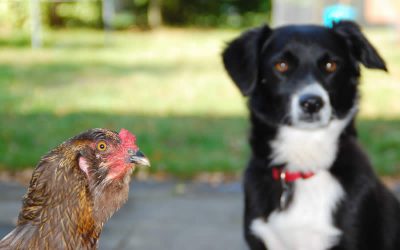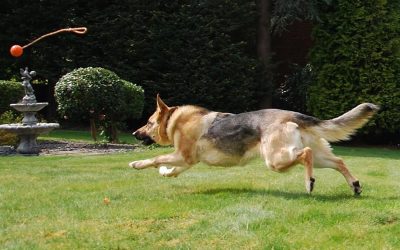Researchers in Scotland have discovered that the brains of stranded dolphins show the classic markers of Alzheimer’s disease in humans.
The study, published in the European Journal of Neuroscience, was conducted by the University of Glasgow in collaboration with the Universities of St Andrews and Edinburgh and the Moredon Research Institute.
Scientists believe their results could confirm the ‘sick leader’ hypothesis, by which an otherwise healthy animal pod finds itself in dangerously shallow waters following the loss of a group leader that may have become confused.
In the study, researchers analysed the brains of 22 dolphins that had been stranded in the coastal waters of Scotland, four of the five dolphin species showed some brain alterations associated with human Alzheimer’s disease.
In particular, three species had amyloid-beta plaques and several other dementia-related pathologies in their brains, suggesting that some dolphin species develop Alzheimer’s-like neuropathology. Dr Mark Dagleish from the University of Glasgow and lead researcher, said: “These are significant findings that show, for the first time, that the brain pathology in stranded odontocetes (dolphins) is similar to the brains of humans affected by clinical Alzheimer’s disease.”
Read full article here published in MRCVS January 2023
What does this have to do with pet food?
The common denominator that we have with mammalian dolphins and humans, is the eating of fish! It is known that fish contains levels of arsenic from the ocean which can bioaccumulate as these fish are eaten by mammals. The studies of the affected dolphins showed that in particular, three species had amyloid-beta plaques and several other dementia-related pathologies in their brains.
A quick Google search shows that arsenic exposure causes these ‘amyloid-beta plaques’ to develop so there should be research into the eating of any fish foods or use of fish oils and the development of Alzheimers in humans and age related dementia in our pets.
It doesn’t stop with arsenic that bioaccumulates in one species and gets stronger when eaten by another species. This article shows the effect of all the dangerous heavy metals and how they bioaccumulate in the organs of feedlot animals….the very organs that are used in the pet food industry!
Fish has been used as a protein and fat source in pet food and continues to be used when we know that dogs and cats are land mammals that would never normally choose to catch fish if left to fend alone in the wild – especially cats who are originally desert animals. There really should be a complete ban on the use of fish of any sort in pet food…especially if fish are known to be carriers of not only arsenic but also heavy metals such as lead and mercury that bioaccumulate in the tissues of pets fed these foods.
Read here about the presence of arsenic in pet food mentioning fish in particular as a real hazard.
Yet again, even more reason to only eat plant-based natural pure foods – for us and our pets!
“As a vet, I believe in a kinder, healthier way to feed our pets that does no damage to our environment, harms no animals and uses fresh, healthy plant-based ingredients for a balanced and delicious diet”
Arielle Vegan Vet
“If nobody changes then nothing changes but if somebody changes then everything changes!”
Arielle Vegan Vet

I was blown away by the webinar last night…
This is what I picked up from the discussion on cancer and plant-based diets with Prof Clare Knottenbelt that completely shocked and amazed me….
Vegan Vets continue to INSPIRE
Meet inspiring vegan vets Dr Sarah Dodd from Vivus Pets and Dr Lucy McKinna from Noochy Poochy
Why we should NOT be eating chickens
From the bioaccumulation of heavy metals when chicken are fed fishmeal; to the continued devastation of Avian Flu to people and wild birds…we should not be eating chickens
Why Just be Kind?
“There’s no such things as a small act of kindness. Every act creates a ripple with no logical end”
An enormously inspiring live webinar
“Be brave enough to live the life of your dreams according to your vision and purpose, instead of the expectations and opinions of others”
Latest Vegan Dog Food Published Studies Are Positive
“There was no overwhelming evidence of adverse effects arising from use of vegan pet food and there was some evidence of benefits”
Vet Students Learn About Sustainable Pet Food!
What a privilege to speak to vet students at Nottingham Vet School this week and teach them all about a topic that they knew nothing about
We are NOT increasing our prices!
We are just SO pleased to say that we will not be increasing any of our prices until spring and we are here to fully support you with feeding your dog a nutritionally sound and delicious plant-based diet!
The Value of Vet Nurses
Vet Times Vet Nurse calendar features Dogs Go Plant-Based and Just be Kind Vegan Dog Food to start the year!
Legumes NO longer seen as a cause of DCM!
Peas and legumes are now no longer implicated as being a possible cause of DCM in dogs as no further cases are being noticed…vegan dog food is safe and healthy for your dog!
The importance of weight loss for us and our dogs
I have to confess I am lighter than I’ve ever been now that I follow a low FODMAP vegan wholefood diet – hoorah – I am eating exactly the same foods as Ruff!!
So much success for VEGAN DOG FOOD!
As we end another year and all reflect on what has been in the last 12 months, I can only stay so enormously positive for what lies ahead with us and feeding our dogs plant-based!















